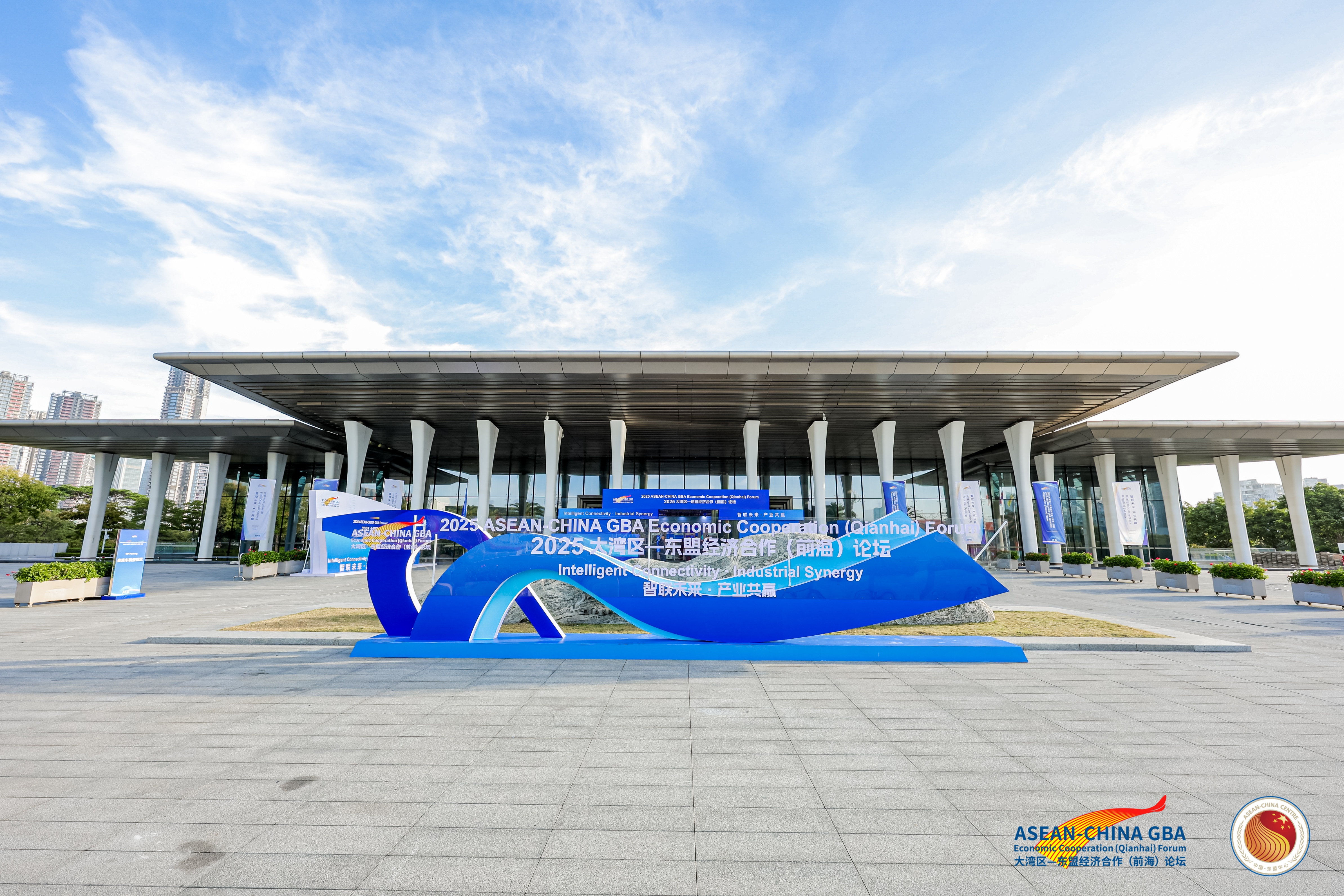
Despite global uncertainties, the vibrant Guangdong-Hong Kong-Macao Greater Bay Area is poised to become a key engine boosting high quality digital development of the economies of China and the Association of Southeast Asian Nations, participants told a high-level forum on Friday.
Delivering a keynote speech at the 2025 ASEAN-China Greater Bay Area Economic Cooperation (Qianhai) Forum, in Shenzhen, Guangdong province, Shi Zhongjun, secretary-general of the ASEAN-China Centre, said that China and ASEAN are joining forces to foster greater economic integration, despite the backdrop of a global economic slowdown and the effects of unilateralism and protectionism.
Over the past five years, the two sides have remained each other's largest trading partners.
Benefiting from institutional innovations, industrial synergies, and coordinated supervision, the Greater Bay Area, one of the most open and dynamic regions in China, has become a key platform for further deepening cooperation between Chinese and ASEAN enterprises. It is also expected to inject fresh momentum to the Asia-Pacific region’s economic growth, he said.
ALSO READ: Shenzhen hosts AI sanitation robot contest to boost real-world application
Calling for deeper collaboration in digitalization and intelligent technologies to boost industrial upgrade, Shi said he hopes more joint research and pilot projects can be launched to help enterprises share the dividends of digital economic development.
ASEAN Secretary-General Kao Kim Hourn said that in an uncertain international environment, both ASEAN and China have demonstrated strong resilience, achieving sustained and robust economic growth.
According to forecasts from various institutions, both ASEAN and China are expected to achieve economic growth exceeding 4 percent this year, with China possibly reaching 5 percent — all well above the global average of 3 percent.
The two sides have formed a promising economic community characterized by strong innovation and sustainable development potential. And the Greater Bay Area, with its powerful influence in technology and finance, has become a vital bridge connecting China's advanced tech ecosystem with ASEAN and beyond.
READ MORE: China’s role in technology advancement and ASEAN ties highlighted at summit
He said that the next phase of cooperation must focus on digital transformation, which is the core force shaping the future economy and society. Leveraging China’s technological leadership and ASEAN’s thriving digital economy, the Asia-Pacific region is fully capable of leading the trends of the digital age.
Lim Lork Piseth, secretary of state of Cambodia’s Ministry of Commerce, emphasized the Greater Bay Area’s role as a key partner in fueling the country’s industrial upgrade and modernization, especially in the fields of agriculture and digital economy.
Actively embracing Greater Bay Area’s development and deepening trade ties with Hong Kong and Macao, Cambodia aims to foster a more resilient, diversified and competitive economic system, he said.
Norman Muhamad, Malaysia's ambassador to China, expressed his hope that under the 15th Five-Year Plan (2026-30), which will guide China’s development for the next five years, the Greater Bay Area will create more development opportunities for Asia and propel the rapid growth of regional economies.
READ MORE: China, ASEAN pledge deeper collaboration
By 2025, Malaysia aims to have the digital economy contribute over 22.6 percent to its GDP. He believes the Greater Bay Area holds great potential to assist the country in achieving the goal.
During the forum, a project aimed at fostering collaboration between emerging industries in China and ASEAN was launched, with the initial collaboration hubs to be established in Singapore, Malaysia, as well as Shenzhen and Guangzhou in China.
It is expected to facilitate the demonstration and applications of emerging technologies, align industry standards and regulatory policies, and promote deeper industrial collaboration.
Additionally, over 20 collaboration projects were signed at the event, covering a wide range of fields, including startup development, legal services, overseas expansion for enterprises, solar power utilization, and cell therapy.
Contact the writer at bingcun@chinadailyhk.com


